Lined up outside the Lviv Railway Station on Tuesday, waiting for a train to Poland, Natasha Yarova could hardly believe she was suddenly a refugee.

“Actually, I am very angry,” the Odesa woman said as she shuffled toward the front doors with her son and daughter, each lugging a bag.
“We were living happily and quietly, everything was okay,” she said. “I don’t understand why I have to leave my home, my beautiful country.”
More than two million people have now fled the Russian invasion of Ukraine, the United Nations High Commissioner for Refugees said Tuesday.
Europe’s fastest-growing refugee crisis since the Second World War, the mass exodus has strained the main railroad station in Ukraine’s westernmost city.
Trains were arriving from Kyiv, Kharkiv and other centres, bringing hundreds of passengers out of areas under Russian attack.
From Lviv, they boarded buses and vans, or transferred onto trains to Poland, which has brought in more than half the refugees so far.
More than 400 civilians have died since Russia launched its attack on Feb. 24. The UN wants civilians to have safe passage out of conflict areas.
“It’s so sad for me. It’s very hard for my heart,” said volunteer Tania Ruma, who was handing out food at one of the Red Cross tents outside the train station.
If the Lviv railway station has become the hub of the refugee crisis, extracting those fleeing the war and directing them abroad, it is an orderly one.
Despite the crushing numbers of passengers disembarking from trains and queuing up to leave the country, everything appeared to be running smoothly Tuesday.

Get breaking National news
Oil drum fires served as warming centres, while volunteers handed out sandwiches, cakes, potatoes, apples and bananas.
The line up to board trains out of Ukraine was a mass of women, children and the elderly, some clearly struggling, every one of them seemingly an eye-witness to the pain of the past two weeks.
“They are really targeting the residential buildings,” Alina Tershchenko said of the Russian forces near the capital Kyiv.
Tershchenko, 31, said she didn’t initially believe the news of an imminent Russian invasion until she heard gunshots.
She hid in the basement when the Russian forces began their bombardment of Kyiv. Her sister’s car was hit by shrapnel that shattered the adjacent building, she said.
Life in Kyiv got more difficult when Tershchenko came down with pneumonia. The hospital could not take her, so she asked for help on social media, she said.
Her mother lined up at a pharmacy for eight hours for medicine, and a nurse who had antibiotics gave her an injection, Tershchenko said.
The train from Kyiv took 12 hours, including an unexplained stop during the night to change routes. She is now on her way to Dubai.
But she worries the defence forces may not be able to withstand the larger Russian army ordered into Ukraine by President Vladimir Putin.
“I can’t believe what’s going on,” she said. “I just only hope that Europe or U.S. will help, not only with guns and everything but real help, because I think we won’t be able to handle it, to be honest.”
Law student Alexandra Kozul said that after enduring shelling in Kharkiv, she went to Dnipro by car with five others and then took a train to Lviv.
She intended to join friends in Warsaw.
Yarova said that while Odesa had not yet been attacked, residents were worried the Russian military was poised to move on the city.
President Volodymyr Zelenskyy said as much on March 6, warning that Russia intended to begin bombing the strategic port city.
“We live in fear. Any moment something could happen,” Yarova said. “I just want to hide somewhere and cry out all the tears.”
It was particularly upsetting to Yarova that her father, who lives in Russia, where the government has cracked down on independent news, doesn’t believe a war is really occurring.
Neither do her other family members in Russia, whom she said told her not to worry, that the Russian forces were only coming to help Ukrainians.
She admitted that even she initially found it hard to believe Russia would invade, forcing her to seek asylum in Poland.
“We don’t know what to do next, we are lost a little,” she said. “But we are strong.”
Stewart.Bell@globalnews.ca

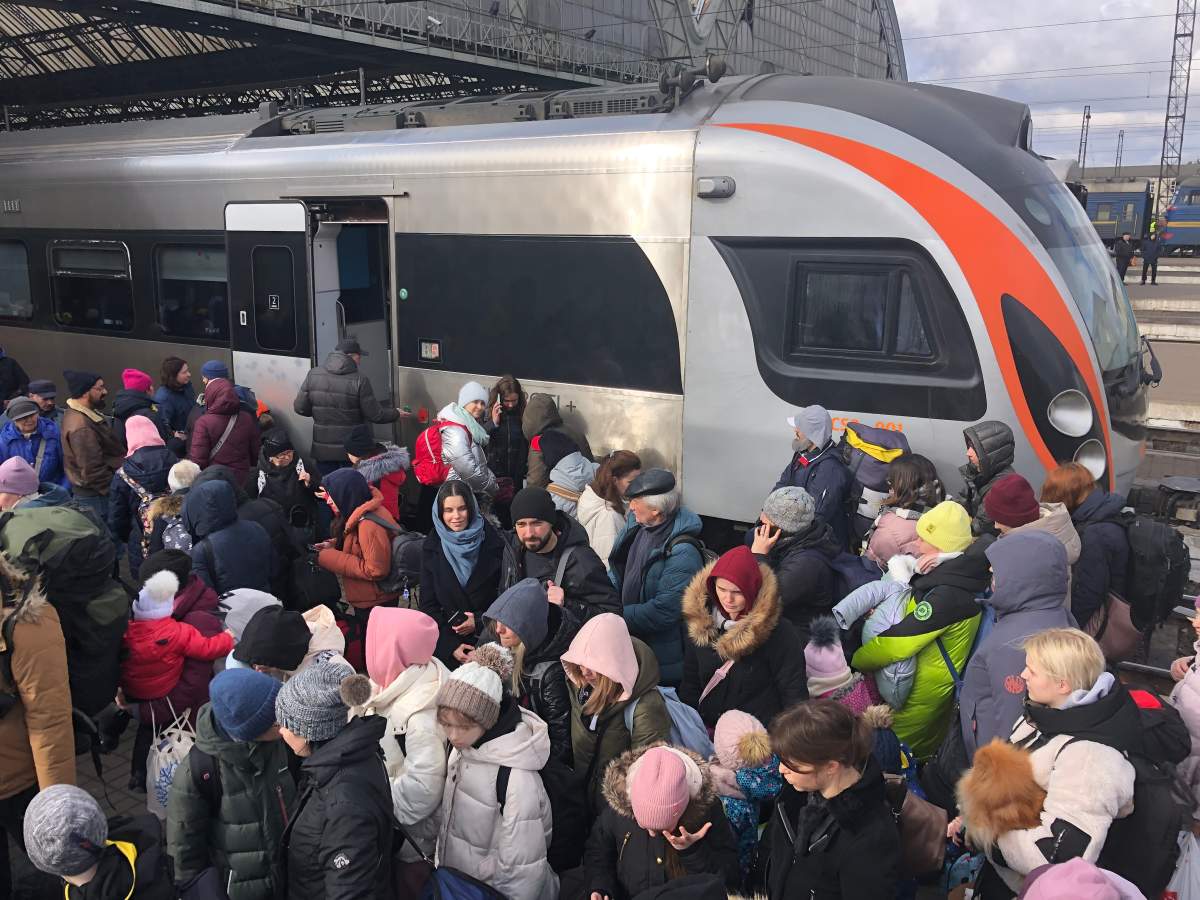
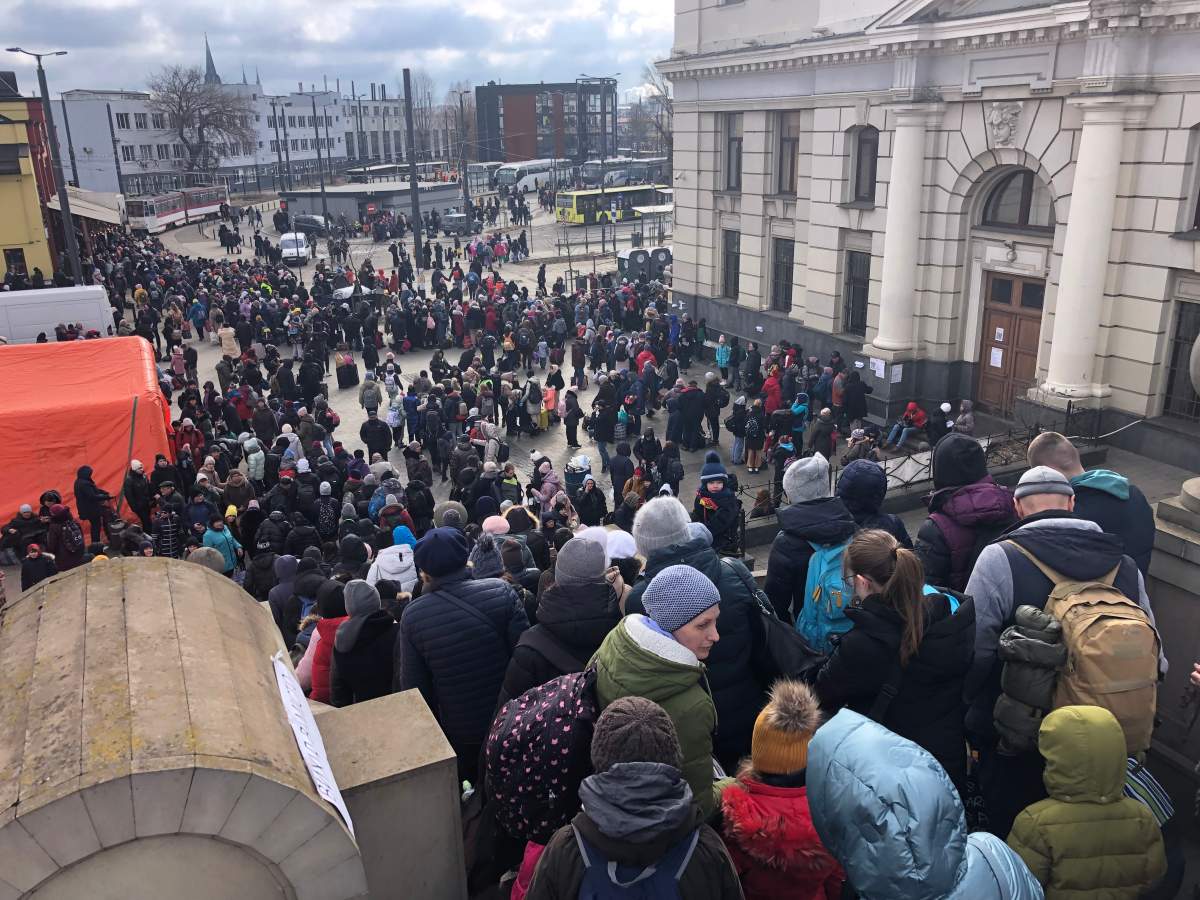
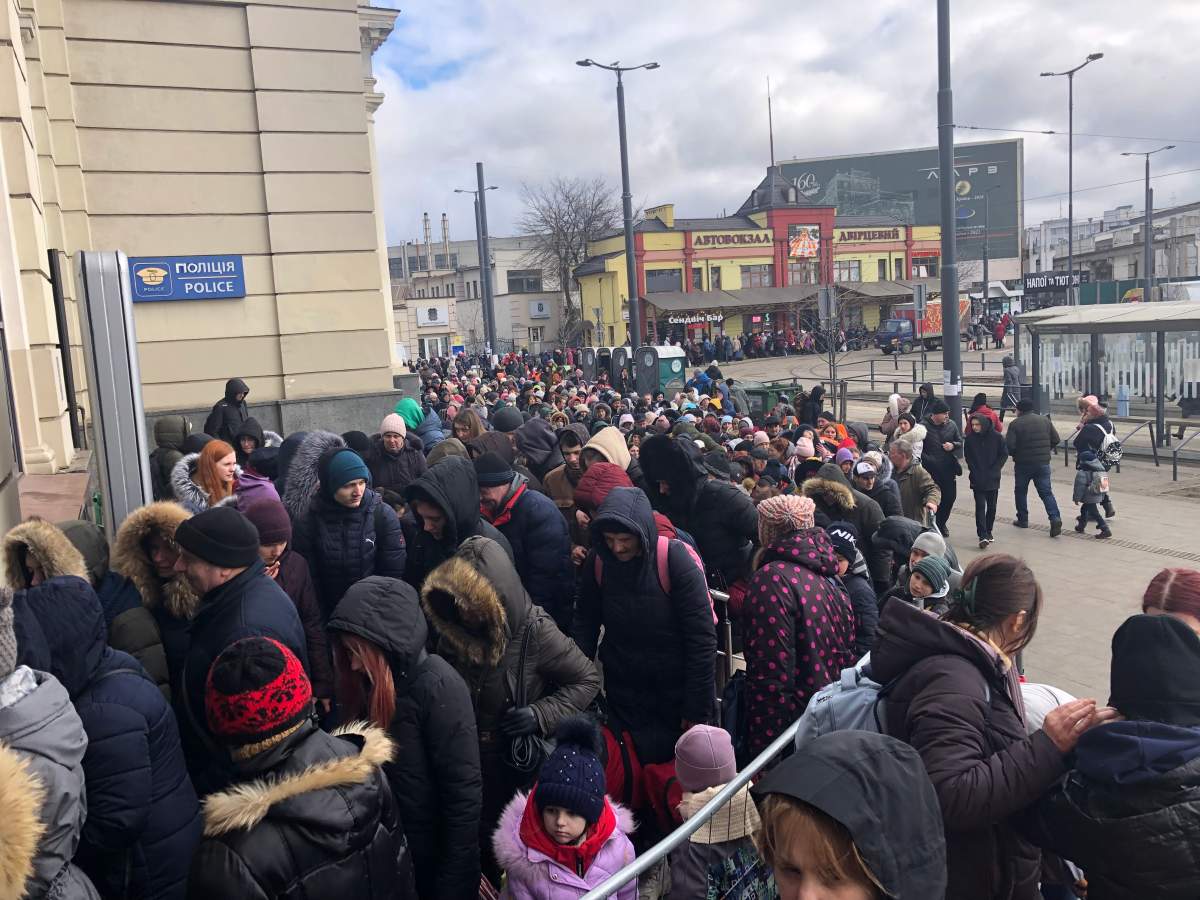


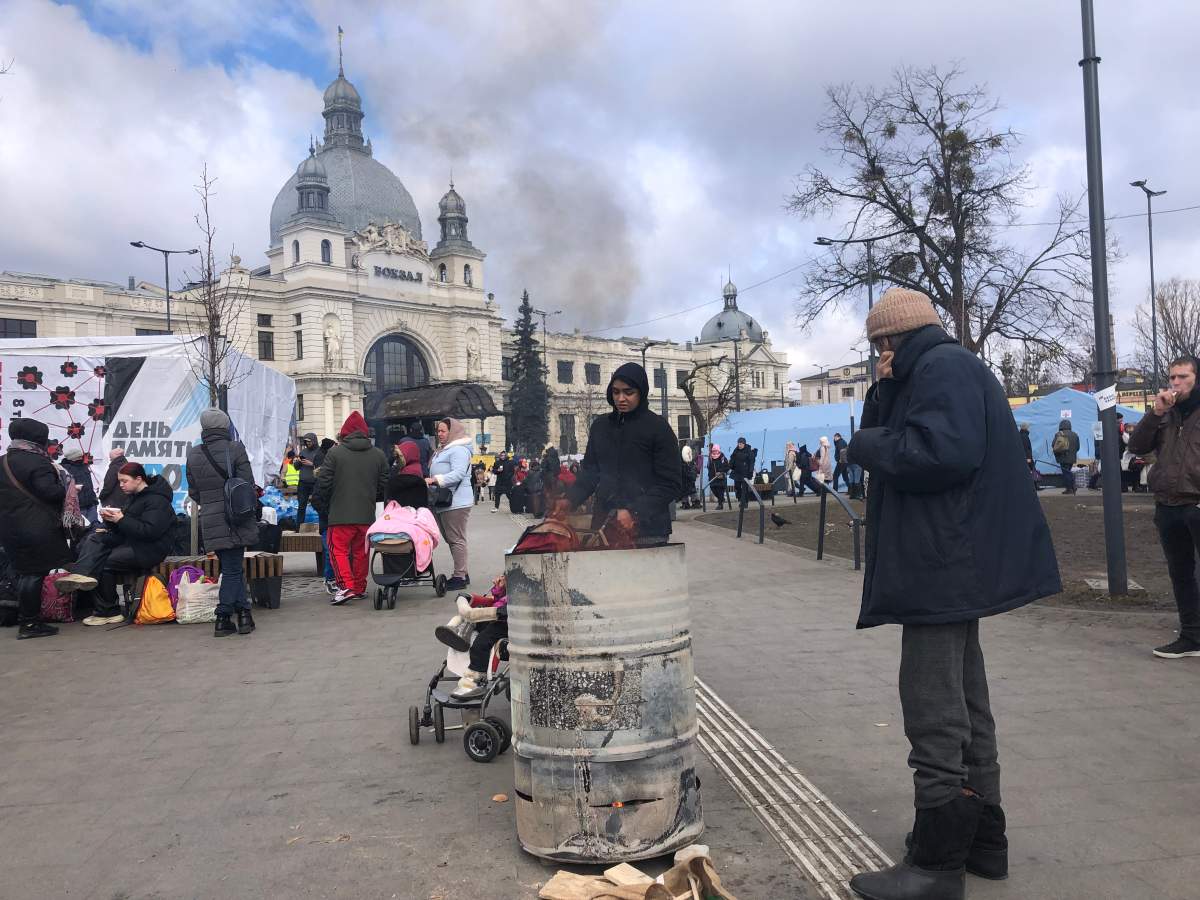
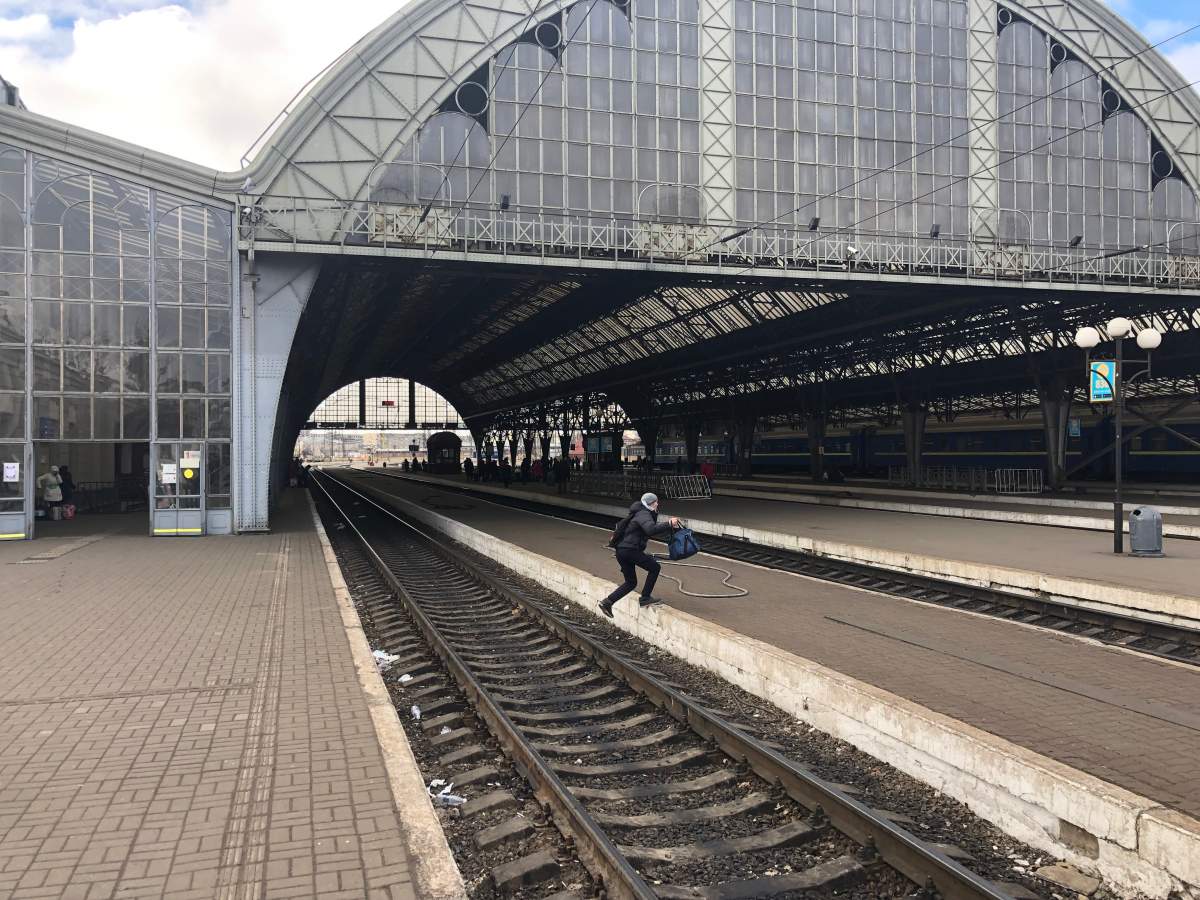




Comments
Want to discuss? Please read our Commenting Policy first.